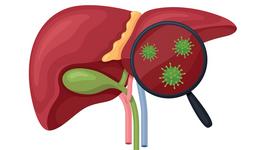First-Ever Prime-Editing Therapy Shows Safety and Efficacy in Patient With Chronic Granulomatous Disease
CMN Intelligence - The World’s Most Comprehensive Intelligence Platform for CRISPR-Genomic Medicine and Gene-Editing Clinical Development
Providing market intelligence, data infrastructure, analytics, and reporting services for the global gene-editing sector. Read more...
Clinical data shared by Prime Medicine earlier this week provides the first indication that prime editing is safe and efficacious in humans. The data was collected from the first patient dosed in the first-ever clinical trial of a prime-editing therapeutic.
Specifically, the Phase 1/2, multi-national trial is evaluating the safety, biological activity and preliminary efficacy of PM359 in adults and children with chronic granulomatous disease (CGD). This rare inherited, immune deficiency is characterised by increased susceptibility to bacterial, mycobacterial and fungal infections. Symptoms typically begin in early childhood and if undiagnosed or untreated, it may be fatal. In some cases, CGD can lead to autoimmune conditions affecting the bowel, soft tissues, or the urinary and digestive tracts.
CGD arises through mutations in any of the genes that encode the subunits of the NADPH oxidase complex, which is indispensable for phagocytosis of pathogens, particularly by neutrophils. Mutations typically occur in the following genes: CYBA, CYBB, NCF1, NCF2, CYBC1, or NCF4 genes, and CGD is categorised into five types, distinguished by the associated genetic variant.
PM359 is an autologous ex vivo haematopoietic stem cell therapy that is prime-edited to correct the delGT mutation in the NCF1 gene; this is the most prevalent disease-causing mutation in the p47phox variant of CGD, which is expected to affect approx. 25 % of all CGD cases.
Single dose of PM359 was well tolerated and significantly restored NADPH oxidase activity
According to the press release, the patient was treated with a single dose of intravenously administered PM359, and NADPH oxidase activity was measured biochemically before dosing (i.e., at baseline) and again 15 and 30 days after dosing. This revealed that treatment with PM359 led to complete restoration of NADPH oxidase activity in 58% of neutrophils by Day 15 and 66% of neutrophils by Day 30, which is significantly higher than the anticipated minimum threshold for clinical benefit of 20%.
The patient experienced rapid engraftment of the transplant following myeloablative conditioning, whereby engraftment was confirmed in neutrophils on Day 14 and in platelets on Day 19. Prime Medicine notes in its press release that this is almost twice as fast than approved gene-editing technologies, where median engraftment has been reported to occur on Days 27 and 35 across these same measures.
Treatment with PM359 was generally well-tolerated, with an acceptable safety profile. Adverse events (AEs) were generally consistent with AEs otherwise observed during myeloablative conditioning with busulfan. No serious AEs related to PM359 were reported as of the data cut-off.
PM359 addresses the limitations of haematopoietic stem cell transplantation
It is currently possible to cure CGD via transplantation with donor haematopoietic stem cells. However, patients who receive this treatment run the risk of developing graft-versus-host disease and graft failure, and access to suitable donors is a major challenge. PM359 addresses those limitations by prime editing patients' own haematopoietic stem cells ex vivo to correct a high percentage of cells that harbour the disease-causing mutation. Pre-clinical studies of PM359 demonstrated that edited cells could repopulate the bone marrow and restore the function of the NADPH oxidase complex.
In May 2024, Prime Medicine announced that the FDA had cleared its IND application for PM359 for the treatment of CGD, making PM359 the first prime editor to enter the clinic. PM359 has received Rare Paediatric Drug and Orphan Drug designations from the FDA.
At the same time that Prime Medicine shared the PM359 clinical data, it also revealed that it does not plan to independently advance its efforts in CGD. According to the press release, the company is exploring options for the continued clinical development of PM359 external to the company and ceasing further efforts in X-linked CGD. We will provide further updates on PM359 as they emerge.
For a complete overview of current gene editing clinical trials, check out CRISPR Medicine News' Clinical Trials Database.
To get more of the CRISPR Medicine News delivered to your inbox, sign up to the free weekly CMN Newsletter here.

CRISPRMED26, April 14-16th, 2025 - Stay tuned...
Tags
ArticleNewsClinical News UpdatesChronic Granulomatous Disease (CGD)Prime Medicine
CLINICAL TRIALS
Sponsors:
Base Therapeutics (Shanghai) Co., Ltd.
Sponsors:
Base Therapeutics (Shanghai) Co., Ltd.







